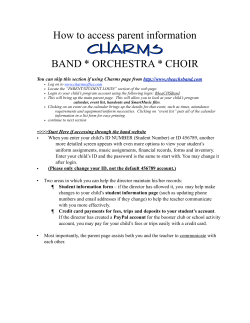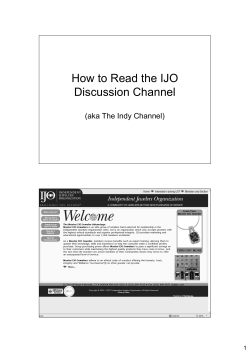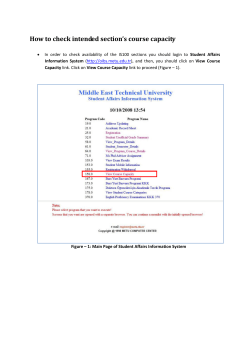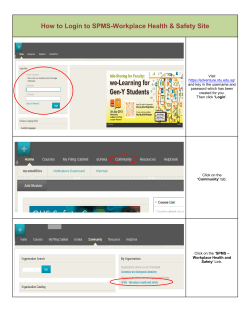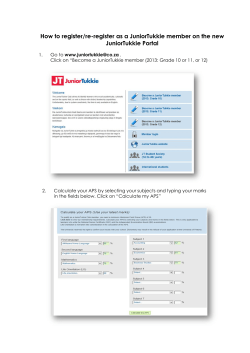
Using Web of Science (and citation searching) INFORMATION SKILLS
INFORMATION SKILLS University Library Using Web of Science (and citation searching) Web of Science is a collection of databases which index journal articles across the sciences, arts and humanities, allowing you to find out what is ‘out there’ in the journal literature on a specific topic. Once you know what exists, you will need to track the items you want down. They may be available in full-text online, in print in the library, or you may need to request them through the interlibrary loans service. TO BEGIN 1. Go to the University Library website www.port.ac.uk/library 2. Click on Information Resources and then click on Databases on the left 3. Click on the Web of Science link on the right under Top Databases If you are accessing Web of Science from off campus, you will be taken to a Shibboleth login page. Select ‘UK Federation’, then type Portsmouth in the search box, select University of Portsmouth and click on ‘Continue’. Use your university username and password to login where the UoP login box appears. You can add fields to the search screen to create rows of search boxes whose contents can be combined using Boolean Logic by using the Boolean operators available in the drop-down lists at the beginning of the rows. If you are unfamiliar with Boolean Logic please read the guide available from the University Library. Click on the Library Guides link on the Library homepage. Enter your search terms in the boxes provided. Use the drop-down lists at the end of each box to select the type of search to be applied, e.g. Topic, Author, Publication Name, etc. Do not type sentences. Only put words together where you want them found as a phrase. Use the * character for truncation; searching for pollut* will find any words beginning with that stem, e.g. pollute, polluted, polluter, pollution, pollutant, pollutants etc. Click on the Search button to carry out your search. www.port.ac.uk/library VIEWING YOUR SEARCH RESULTS You can refine your search using the column on the left of the screen. You can sort the results by date, author or number of citations Clicking on an article’s title will display more details about the article, including an abstract, but not the article in full text because Web of Science is not a full-text database. LINKING TO THE FULL TEXT OF ARTICLES If you want to check if it is possible to access the full text of the article (either online or in print on our shelves) click on the Locate Full Text button. SAVING, PRINTING OR EMAILING YOUR SEARCH RESULTS Click in the box next to each result to mark that item for saving, printing or e-mailing. Click on the appropriate icon: Print, E-mail, Add to Marked List, Save to EndNote online etc to carry out the chosen operation on your selected references. VIEWING YOUR SEARCH HISTORY You can view your search history (for the current session) by clicking on the Search History link at the top of the search screen. Doing this will display a numbered list of all the separate searches that you have carried out in the current session. Using the check box by each set you can combine your earlier searches together using either Boolean AND or Boolean OR logic. You can also delete unwanted sets of references by clicking in the Delete checkbox by each set of references. Enquiries 11/2014 CITATION SEARCHING The Web of Science cited reference search feature can be used to find articles that update the information described in the works on your reading list. You can discover works that refer to, or cite, the original. Cited reference search step 1 Select the tab Web of Science then Cited Reference Search Try the tutorial for extra help and advice Use wildcards (*) to get more results – e.g. after an initial in the author’s name, to find either the initial or full names starting with the initial To search for an article type the author’s surname followed by an initial. You can also add the start of the journal title and the year if you want You can choose to see the very latest citing articles or over a longer period Cited reference search step 2 Select the references you want to read You can see here how many more recent articles cite this one in their work You can select the language and the type of document you want Click finish search for the results For more information on the support the Library can offer researchers, please see http://www.port.ac.uk/library/help/research/ Enquiries 11/2014
© Copyright 2025
